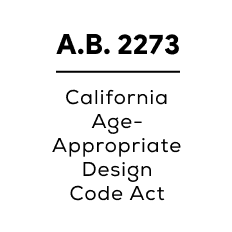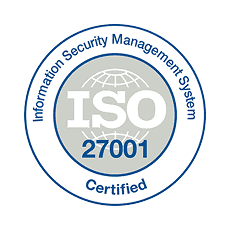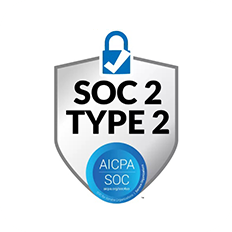Introduction
PrivateID is built for seamless, interoperable identity authentication with complete privacy at its core. Its edge-based architecture and patented tokenization ensure biometric data never leaves the device, enabling scalable, compliant, and frictionless authentication across industries.
Kairos is a face recognition platform offering a cloud API and a self-hosted/on-prem option. Typical workflows send images to Kairos to detect faces, generate embeddings, and perform verification/identification; on-premises deployment is positioned for customers needing tighter data control.
1. Architecture
PrivateID: Performs 1:1 biometric matching directly at the device edge. Biometric data and PII remain securely on the device, preserving privacy while eliminating data breach risks and simplifying global compliance.
Kairos: Provides both SaaS (cloud API) and on-premises hosting. Standard usage involves transmitting images to an API for processing; with the self-hosted option, processing runs within the customer’s environment.
2. Privacy & Tokenization
PrivateID: Uses patented Homomorphic Tokenization, transforming biometrics into irreversible, anonymized tokens. Tokens are unique, cannot be reverse-engineered, IEEE 2410 compliant, and exempt from global biometric privacy obligations under GDPR, CCPA, BIPA, and HIPAA. No biometric data or templates are transmitted.
Kairos: In cloud mode, biometric images are submitted for processing; Kairos’ privacy policy notes that facial images may be collected and can be used for research purposes, placing compliance obligations on the customer. On-premises hosting can keep data inside the customer’s perimeter.
3. 1:1 vs 1:N Matching
PrivateID:
•1:1: Edge-based, no images or biometric data ever leave the device.
•1:N: Only anonymized tokens — not images or templates — are transmitted to the server, enabling privacy-preserving, efficient 1:N searches with constant-time lookups (~5ms), regardless of gallery size.
Kairos: Supports both verification (1:1) and identification (1:N). 1:N commonly uses stored embeddings and searches galleries (e.g., blocklists/known users), with data residing in the chosen deployment (cloud or on-prem). Performance scales with index size and infrastructure rather than tokenized constant-time lookups.
4. Multi-Modal Biometrics
PrivateID: Supports facial, voice, and fingerprint biometrics combined with Passkeys and additional identity signals (geolocation, Wi-Fi sniffing, device fingerprinting) to enable risk-based authentication from any camera- or microphone-enabled device.
Kairos: Focuses on facial recognition and analysis (detection, verification, identification, face attributes). It does not market native voice, fingerprint, or palm recognition modules.
5. Liveness Detection (PAD)
PrivateID: On-device advanced anti-spoofing against photos, masks, screens, and deepfakes, all without transmitting biometric data. Protects privacy and eliminates regulatory and breach risks.
Kairos: Advertises a (passive) selfie liveness model intended to detect spoofs as part of identity verification workflows; customers should validate PAD performance for their threat models.
6. Scalability & Efficiency
PrivateID: Unlimited scalability with consistent performance. A 5MB image is reduced to a ~1KB token, cutting bandwidth and processing costs while delivering constant ~5ms performance across unlimited gallery sizes.
Kairos: Scales via its API or self-hosted infrastructure and vector/galleries you operate. Costs and latency will grow with image volume and gallery size; efficiency depends on hardware, indexing, and deployment choice (cloud vs on-prem).
7. Accuracy
PrivateID: Achieves 99.999% accuracy across unlimited gallery sizes, with privacy-preserving tokenization preventing bias amplification. (NIST FRVT leader)
Kairos: Provides face models for verification/identification, but does not prominently publish independent NIST FRTE/FRVT results on its site; prospective buyers should review any vendor claims and evaluate on target populations.
8. Compliance & Security
PrivateID: Performs biometric processing on-device (1:1) and with homomorphic tokenization (1:N), inherently complying with GDPR, CCPA, HIPAA, and BIPA. Annually certified to IEEE 2410 for biometric processing. No biometric data is ever stored or transmitted.
Kairos: Cloud workflows involve transmitting biometric images; its privacy policy indicates biometric data may be collected and used for research, so customers must ensure GDPR/BIPA-compliant lawful basis, notices, and retention. Self-hosting can aid data residency/control but does not by itself ensure compliance.
9. Deployment & Integration
PrivateID: Lightweight SDK/API for rapid deployment across IAM, healthcare, retail, and finance. Runs on general-purpose hardware — desktops, mobile devices, and POS terminals — without requiring cloud dependency.
Kairos: Offers REST APIs, docs, and sample apps; integrates via cloud API or can be installed on customer servers for on-premises use. Developer resources and examples are available for multiple languages.
10. Ethics & Trust
PrivateID: Purpose-built for user-consented, privacy-preserving identity verification in enterprise and consumer authentication workflows.
Kairos: Public communications have emphasized ethical use and concerns about misuse of face recognition; the company has highlighted bias issues in policing contexts historically. Regardless, responsible use requires explicit consent, data minimization, and ongoing bias monitoring.
11. Cost & Total Cost of Ownership (TCO)
PrivateID: Edge and token-based architecture reduces compute, bandwidth, and storage costs by orders of magnitude. Minimal infrastructure lowers long-term TCO.
Kairos: TCO depends on API usage volume, storage for galleries, and whether you host on-prem (infrastructure/ops) or use the cloud API (pay-per-use). Public pricing exists for some API plans, but enterprise/on-prem costs vary by scale and support.
12. Latency & User Experience
PrivateID: Delivers constant ~100ms performance for real-time authentication at any scale, optimized for seamless user experiences.
Kairos: Cloud calls add network and processing roundtrips; latency grows with gallery size and workload. On-prem can reduce network latency but still scales with compute and index design.
13. Deployment Flexibility
PrivateID: Fully edge-capable for 1:1, hybrid edge-to-server for 1:N with tokenization. No vendor lock-in; supports cloud, on-prem, and hybrid environments.
Kairos: Offers both SaaS and self-hosted options, enabling data-residency control for regulated environments or use of the simpler cloud API when appropriate.
14. Ecosystem & Interoperability
PrivateID: Standards-based (IEEE 2410, FIDO2) interoperability with IAM, MFA, Passkeys, and RBA solutions across industries.
Kairos: Provides language SDKs/examples and REST endpoints for integration; interoperability centers on developer APIs rather than IAM standards like FIDO2 or passkey-native workflows.
15. Bias & Fairness
PrivateID: Tokenization removes demographic identifiers, reducing the risk of bias and improving fairness across populations.
Kairos: Markets “unbiased” algorithms and has publicly discussed fairness; nonetheless, bias mitigation depends on data, thresholds, and customer evaluation across demographics. Independent evaluations (e.g., NIST FRTE/FATE) are the standard reference for benchmarking.
16. Business & Market Positioning
PrivateID: Designed for enterprises, healthcare, finance, and retail requiring privacy-first, compliant, and scalable biometric identity solutions.
Kairos: Positioned as a face recognition provider for verification and identification use cases (KYC, fraud prevention, onboarding), with options for cloud simplicity or on-prem control—more a general-purpose face recognition platform than a privacy-preserving tokenization stack for regulated identity at very large scale.
Summary
PrivateID keeps biometrics on-device for 1:1 and uses patented homomorphic tokenization for 1:N, delivering constant-time matching, built-in compliance, unlimited scalability, and lower costs—without transmitting images or templates.
Kairos is a face-recognition platform (cloud or self-hosted) that ingests facial images, creates embeddings, and supports both 1:1 verification and 1:N identification, with optional selfie liveness (PAD). Privacy and compliance depend on how you deploy and govern the system, and performance/cost scale with gallery size and underlying infrastructure.














